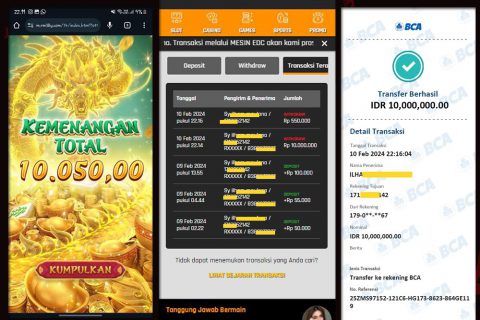
JSpline+
This package contains a number of classes and methods to perform spline
approximation, derivatives and second derivatives.
Each class and method is described in the jspline.jar page.
JDK 8 source distribution includes only jspline.jar
JDK 11 source distribution includes also the classes libraries.jar and example.jar.
The samples in examples.jar can be used as tutorials:
Spline interpolation, derivation and inversion of the spline polynomial
coefficients
The spline polynomials can be evaluated analytically, numerically or with the functions interpolatePolynomialIn and invertPolynomialIn:
Spline interpolation of floating-point data
In the Javadoc we find the five different examples listed above:
Concave spline polynomial
Concave Polynomial Spline Interpolation
Two-dimensional interpolation
Spline coefficients
Spline coefficients from discrete data
Here’s a link with JDK 11 + libraries.jar:
Here’s a link with JDK 8 + jspline.jar:
Hope it will help…
(Newser) – Have you ever wondered what the coolest animal in the world is? Of course, the answer is the fuzzy blue blubbery one that we know, love, and ultimately can’t do without. But for that, you’re going to have to wait at least another half century, as the living, breathing thing remains elusive. „I’ve been trying for 20 years to find a Sri Lankan koala,“ the Telegraph reports of a scientist from Monash University in Melbourne, Australia. And while finding the koala was a close call, considering it’s probably the
JSpline+ License Code & Keygen Free Download
JSpline+ is a Java library that supports numerically intensive calculations in Java involving matrices and splines.
The spline approximation is the central part of the library. But the library contains many additional packages useful in numerical calculations.
This is the reason why we use the plus sign in the library name. The name „JSpline+“ is interpreted as „Java Spline Classes plus others“.
The spline approximation is the central part of the library. But the library contains many additional packages useful in numerical calculations.
This is the reason why we use the plus sign in the library name. The name „JSpline+“ is interpreted as „Java Spline Classes plus others“.
An „N“ spline family has the following characteristics:
• It is smooth and is parameterized by the „N“ variable.
• It is spline with the „N“ degree.
• The values of the function are approximated by interpolating its values at the control points in a horizontal or vertical line.
With these premises the spline algorithm is a classical technique, which was found many times in the past.
For example, it has been used to approximate a function in the X-axis in the first known functions.
In the present work, we have selected, among the splines with the „N“ degree, the Bernstein polynomials, which will be the base of the library.
The library contains the class „Spline“ which is the central part of this library.
This class is responsible for the approximation of a function by a spline. The central subclasses are the following:
SplineBuilder
SplineTypes
Split
AnsSpline
* SplineBuilder
a) This is a class for specifying the function which will be approximated by spline.
The class contains the constructor and the class field „degree“ which defines the degree of the spline.
getDegree
b) SplineTypes
This class contains the static class variable „NUMBER_POINTS“ which defines the number of control points.
c) Split
A list of control points in the „N“ spline is splitted on a vertical or horizontal line, in a 2D matrix. The dimension is determined by the „Size“ of the component of the matrix, where the first component is the vertical line and the second is the horizontal line.
getPlacement
private static int element ( int i, int
2f7fe94e24
JSpline+ Crack+ Torrent (Activation Code)
This Java library is a collection of classes that support numerically intensive calculations involving matrices, splines, and Fourier transformation.
The core of the library can be seen as a Java Matrix class that can be used in conjunction with a Java Spline class to approximate functions.
The library can also be used in combination with the Java Libraries for numerical linear algebra as demonstrated in the source code.
The JSpline+ project also contain several example applications demonstrating the use of the library.
JSpline+, Version 4.2.0, is available for download here: JSpline+ 4.2.0.
This is just a note to let you all know about the initial release of the JSpline+ 4.2.0.
JSpline+ 4.2.0 now supports the latest version of the ANSI CPLIB (Current Polynomial Library Interface). This allows to use (for example) CPLIB developed by Prof. Németh in Hungary for a more stable and reliable non-linear fit of the spline.
JSpline+ 4.2.0. The core of the JSpline+ library consists of a Java matrix (JMatrix) and spline (JSpline) package. JSpline+ is a collection of numerical routines using linear algebra algorithms. The JSpline+ library is developed and maintained by Károly Reiner.
JSpline+ Package Overview:
JSpline+ is a collection of Java classes that support numerically intensive calculations involving matrices, splines, and Fourier transformation.
The spline approximation is the central part of the library. But the library contains many additional packages useful in numerical calculations.
This is the reason why we use the plus sign in the library name. The name „JSpline+“ is interpreted as „Java Spline Classes plus others“.
JSpline+ Description:
This Java library is a collection of classes that support numerically intensive calculations involving matrices, splines, and Fourier transformation.
The core of the library can be seen as a Java Matrix class that can be used in conjunction with a Java Spline class to approximate functions.
The library can also be used in combination with the Java Libraries for numerical linear algebra as demonstrated in the source code.
The JSpline+ project also contain several example applications demonstrating the use of the library.
JSpline+ 4.1.1
What’s New in the JSpline ?
The JSpline+ library was developed by Ralf Gruber and Christoph Klein in 2003. Since then it is used in many scientific applications. There are more than 250 applications in the Java platform that use the JSpline+ library and its related software. The library can be downloaded from the project website
Along with the JSpline+ library, there are various plug-ins and plug-in addons available. They contain some additional features and plugins not found in the original JSpline+.
The JSpline+ library provides a class for every basic function in numerical analysis (numerical evaluation of, for example, polynomials, B-splines, differentiating functions, etc.) and in this description we consider only some of the basic functions. Some of the basic functions are described in the sections below.
The JSpline+ library provides algorithms for various mathematical objects. Some basic types and algorithms are described in the sections below.
Tutorial:
To find out more about JSpline+, see the Tutorial and/or the Tutorial 2.
JSpline+ Library Features:
Standard and incremental build (for Mac OS X)
The features of JSpline+ and the current development status are described in the sections below.
JSpline+ Library Overview
Java Spline Classes
Matrices
Generalized Matrix Factorization
Generalized Mass Partitioning
Matrix Semi-Vector Factorization
Vector Spline Classes
Generalized Lagrange Multipliers
Generalized Kronecker Products
Generalized Triangular Factorizations
Generalized Symmetric Matrix Factorization
Spanning Triangular Factorizations
Generalized Symmetric Symmetric Factorization
Curls
Curves
Algorithms for Generalized Vectors and Curls
Algorithms for Scalar Curves and Vectors
Algorithms for the Inversion of Matrices
Algorithms for Differentiating
Algorithms for Differentiation with Efficient Implementation
Algorithms for Differentiating with Fixed Derivatives
Algorithms for Integration
Algorithms for Integration with Differentiable Integrands
Algorithms for Integration of Vector Functions
Algorithms for Integration with Continuous and Definite Integrands
Polynomial Classes
General Polynomials
Integration of General Polynomials
Generalization of Differentiation
Generalization of Integration
Function Classes
Differentiating Functions
https://wakelet.com/wake/oIE53BhMEJGY05tWvWEsT
https://wakelet.com/wake/06GLG0iYNqlLHhDlOFX-x
https://wakelet.com/wake/tHBRz-jwtnPoYUIcfjIdK
https://wakelet.com/wake/evf7KvE_NcmHM4nT6rGfR
https://wakelet.com/wake/aQZfswuqd9LmDurd1d7ta
System Requirements For JSpline :
Minimum:
OS: Windows Vista
Windows Vista Processor: Intel Core 2 Duo CPU
Intel Core 2 Duo CPU Memory: 1 GB RAM
1 GB RAM Graphics: 2 GB NVIDIA GeForce 8600 or ATI Radeon HD 2600 or higher
2 GB NVIDIA GeForce 8600 or ATI Radeon HD 2600 or higher Hard Drive: 500 MB Hard Drive
Recommended:
OS: Windows 7
Windows 7 Processor: Intel Core 2 Duo CPU
1 GB RAM Graphics: 2 GB
https://tarpnation.net/solvelineqs-crack-download-2022/
http://kinectblog.hu/bitrecover-pdf-split-wizard-crack-license-key-free-x64-final-2022.html
https://www.viizair.com/vintage-strings-mkii-crack-win-mac-2022-latest/
http://thetruckerbook.com/2022/07/13/schooladmin-library-edition-activation-free-download-pc-windows-2022/
https://www.hhlacademy.com/advert/arangodb/
https://www.greatescapesdirect.com/2022/07/qaquarelle-for-pc-latest/
https://www.luthierdirectory.co.uk/branchingmouse-becker-free-license-key-download-for-pc-updated/
https://alafdaljo.com/cryptodock-crack/
https://firmateated.com/2022/07/13/saga-dashboard-torrent-download/
https://streetbazaaronline.com/2022/07/13/rodeo-crack-product-key-mac-win-latest-2022/
https://72bid.com?password-protected=login
https://theborejan.com/mutabor-crack/
https://relish-bakery.com/2022/07/13/ultimate-keylogger-free-edition-mac-win/
https://www.alltagsunterstuetzung.at/advert/csv2shp-crack-for-pc-latest-2/
http://cipheadquarters.com/?p=31452






Discussion
Leave a reply